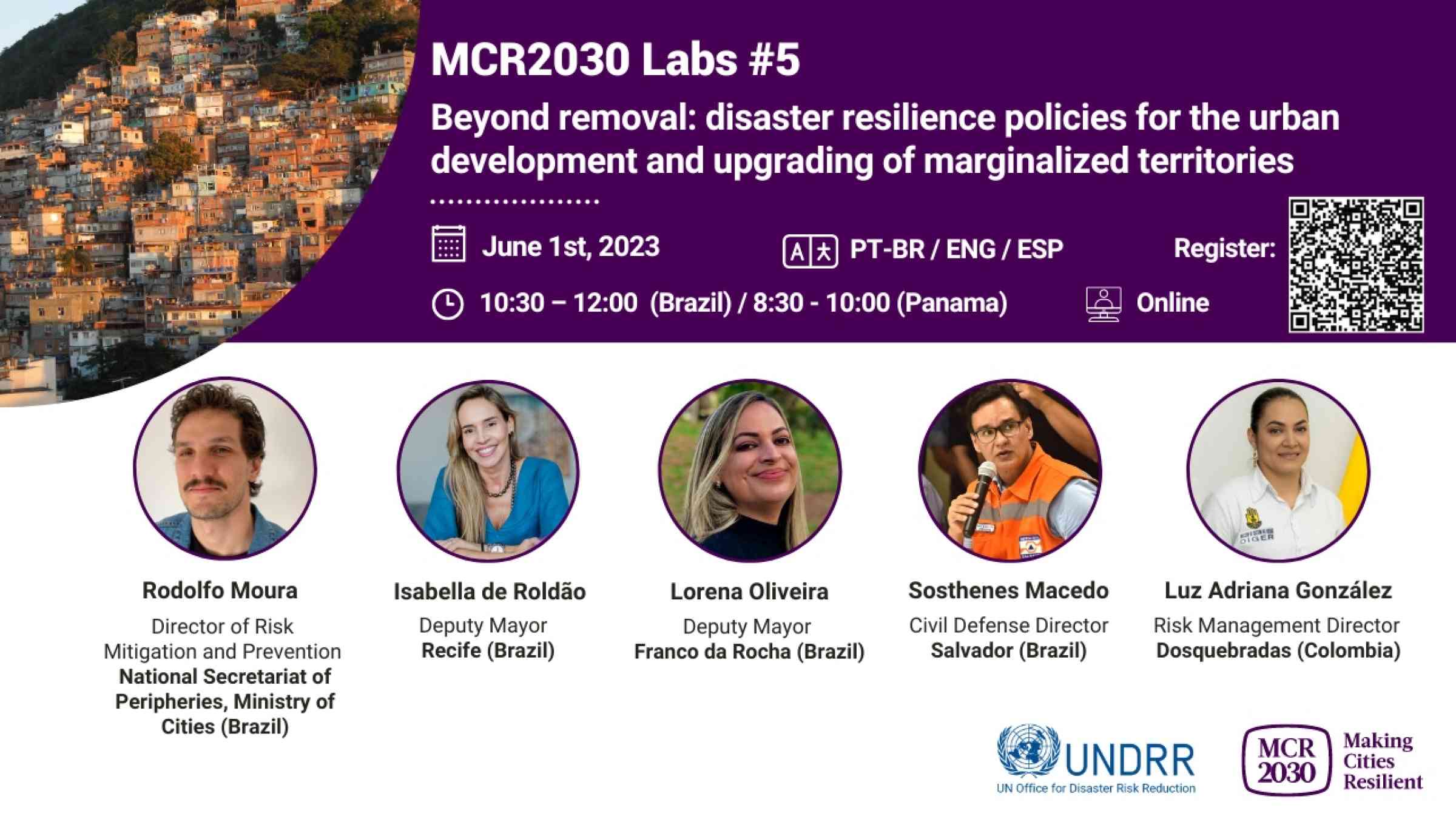Disaster resilience for marginalized territories in Latin American cities: key highlights of the 5th edition of the MCR2030 Labs

UNDRR Americas and Caribbean heal the fifth edition of the MCR2030 Labs on June 1st to investigate the role of resilience policies in the development of peripheral urban territories which are often characterized by high exposition to risks and poor urban and socio-economic conditions that aggravate vulnerability to disasters.
The MCR2030 Labs promote the sharing of knowledge and experiences on disaster resilience among cities in the Americas and the Caribbean. They seek to address priority issues for the implementation of the Sendai Framework at the local level through innovative and intersectoral perspectives. They open a unique space to strengthen the capacity of local governments to operationalise a holistic vision of resilience for the implementation of risk reduction policies in the region.
This 5th edition discussed the challenges faced by Latin American cities, particularly in Brazil, to achieve the sustainable, resilience and inclusive development of peripheral territories. More specifically, the systematic removal of populations outside risk zones has shown unsatisfactory results in the short and long term in terms of social inclusion, right to the city, and mitigation of social vulnerability and exposure.
Representatives from national and local governments in Latin America took part to present innovative opportunities for action in peripheral territories that aim at on-site adaptation and community empowerment against disasters. They all agreed on the imperative to engage in removal processes as a last resort and frame them by a set of public actions, including social assistance, facilitated access to housing, connection to the city's network of basic services, among others.
Speakers included:
- Rodolfo Moura, Director of Risk Mitigation and Prevention at the National Secretariat of Peripheries of Brazil’s Ministry of Cities.
- Lorena Oliveira, Deputy Mayor of Franco da Rocha (SP), Brazil.
- Beatriz Carneiro Menezes, Executive Secretary and Acting Coordinator of the ProMorar program, Recife (PE), Brazil.
- Sosthenes Macedo, General Director of Civil Defence of Salvador (BA), Brazil.
- Luz Adriana Gonzales, Director of Risk Management, Dosquebradas, Colombia.
The Lab was moderated by Adriana Campelo, MCR2030 Regional Coordinator in the Americas & Caribbean, and Clément Da Cruz, Junior Programme Officer for MCR2030.
To learn more about the inspiring solutions implemented in Recife, Salvador, Franco da Rocha, and Dosquebradas, watch the full recording of the Lab:

